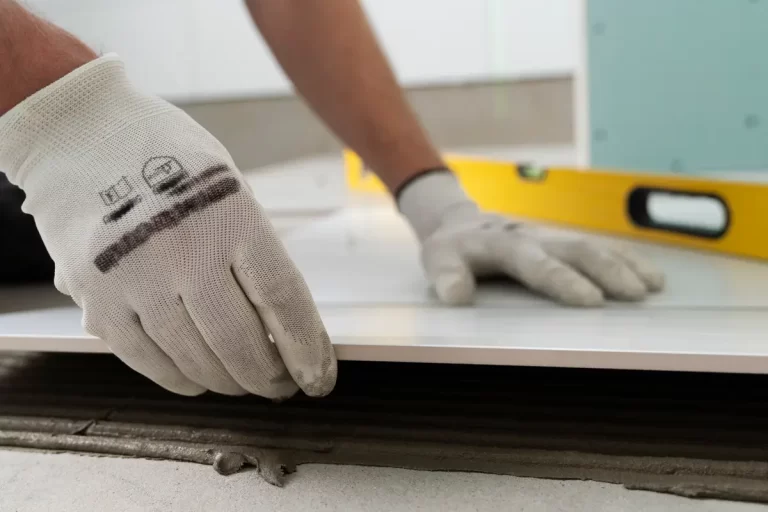Are you Licensed To Do That?
Our LHS team will help remove the stress and confusion when it comes to handling permits. With our experience, we’ll make your remodeling process as seamless as possible so you can reap the benefits of our renovations and your new space.
The Purpose of Permits
Wondering whether your project will require a permit or not? Some renovations may surprise you. Before we uncover which projects will have you contact your local municipality (sounds exciting, right?), let’s first understand what they do. HG.org describes permits as, “Authorizations issued by a city or county and are required for most construction or remodeling projects, in order to ensure the safety of the work and its compliance with current building, construction, and zoning codes.” Basically, permits are put into place to ensure the safety and well-being of current and future homeowners. Additionally, if repairs are needed, any electrician, plumber, or handyman should not be at risk for injury if construction was completed properly. It is also very important to consider how permits protect the value of your home for the future. Taking on a DIY home project without a permit may have huge financial consequences down the road.
Do You Need a Permit or Not?
If your project involves any demolition, it is likely you will need a permit. If there will be changes to electrical work or the structural integrity of your home, you will need a permit. City Applications states permits are also likely needed for paving, building, mechanical, plumbing and septic. Sounds like a lot, right? Here’s a general list of jobs that usually need permits:
- Wall or partition removal
- Adding walls
- Windows and egress
- Roofing
- Electrical
- Replacing water heater
- Shed or Garage Addition
- Fencing installation & repair
- Room conversion (turning your garage into a home office)
Keep in mind, that these building permits are generally required no matter where you live, but there are a variety of permits. Depending on the size and scope of the project, you may need more than a basic building permit. Also, if the house is located in a historic district there may be more reviews or approvals needed. So, what doesn’t that cover? Here are some examples that do NOT require permits:
- Building a small fence (contact the local government to find out what small is)
- Installing countertops
- Installing cabinets
- Deck install under a certain height
- Painting/Wallpaper
- Landscaping
Why Permits are Financially Relevant
Sometimes people avoid permits simply to save time and money. In more desirable locations where house flipping is popular, renovations without permits become more common in order to get the house back on the market. But skipping this very important step has pretty significant consequences. 2-10 points out several instances that working without permits can negatively impact a homeowner. For one, any damage to property without a permit is void of home insurance coverage. Whether this is accidental from something such as bad weather, home insurance won’t be able to cover damages on property that isn’t up to code. Additionally, a home renovated without permits negatively impacts the seller when they decide to put their house on the market. Inspectors will likely uncover these projects and can slow down the transaction until the permits are acquired, fines are paid, and/or the project may need to be completely redone. The seller may also be responsible to pay any back taxes if this renovation caused an increase in property value. The cost of paying these fines combined with removing/rebuilding will cost more than the permits would have in the first place.
LHS Handles This for You
With over 15 years of extensive experience, we know what does and does not require a permit. This helps save as much time as possible with our renovation projects. And in the event that there is a new project on our plate, we find out if and what permits are required. Once we have completed our consultation and are able to build a construction schedule, we will work with your local government to apply for all necessary permits. Another thing we take off your shoulders? Liability. As pointed out by Redfin, having a contractor (LHS) ensures the project is up to code. If you were to handle the permit yourself, the state assumes you are the contractor. In that case, you are handling the project and are liable should any issues arise. Let us remove the stress and confusion when it comes to handling permits. Call today for a free estimate at 734-270-6960 or send us an email at [email protected]. We’ll make this process as seamless as possible so you can reap the benefits of our renovations.
References:
HG.org – https://www.hg.org/legal-articles/common-problems-if-you-don-t-get-a-construction-permit-47689
City Applications – http://www.cityapplications.com/building-permits/MI-Michigan/bldg-Michigan.html
2-10 – https://www.2-10.com/blog/unpermitted-home-renovations-hurt/
Redfin – https://www.redfin.com/blog/when-do-i-need-a-building-permit/







